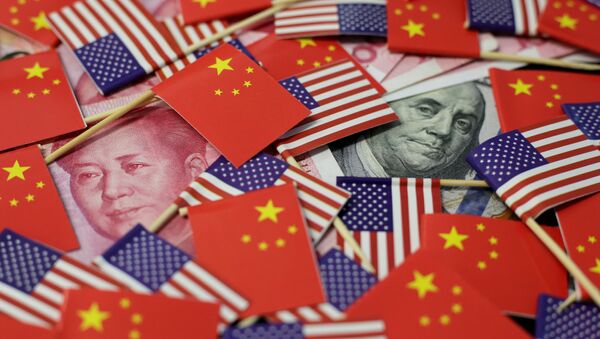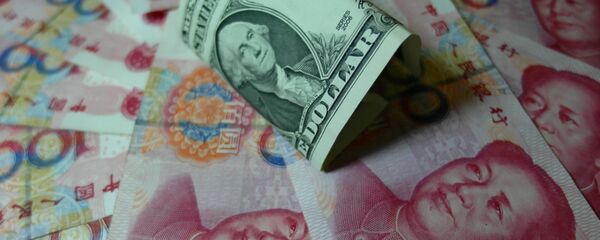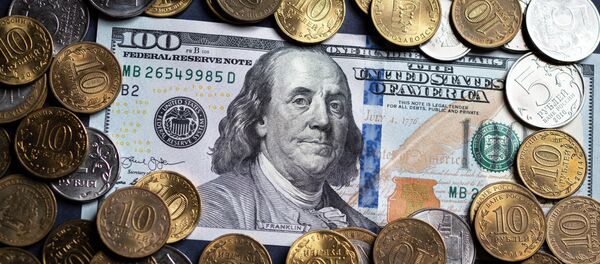As the trade war between Beijing and Washington continues to intensify, economic analysts have started to speculate whether China will use the prospect of selling its vast amount of US securities as a weapon in the conflict. The US Treasury’s latest report indicates that over the period between February and March 2019, Beijing sold $10 billion worth of securities, following four months of buying.
Principal Director and Chief Economist for Action Economics Michael Englund believes that China would suffer more from selling its American Treasury securities than the US. While the threat of such a move may look "interesting, [it is] most likely [an] idle one".
"The US economy is performing well, and would likely absorb the temporary rise in long-term Treasury yields fairly easily, leaving this costly tactic for China almost entirely an ineffective one. This is why the tactic works better as a 'threat' than as an 'action'", the economist said.
Englund explained that Beijing could use the potential sale of treasuries "as a negotiating tactic" in trade talks with US President Donald Trump, along with a "sharp Yuan appreciation". At the same time, he noted that any downward pressure on the price of Treasury securities would be temporary and would "punish the seller" and "subsidise the buyer" - mostly the G-7 states.
The economist further pointed out that Beijing is holding large quantities of treasuries for a reason, one which is far from merely being able to use it as a "nuke" against the US economy. Englund said that they help keep the Yuan competitive against the US dollar and fulfil Beijing's "desire for exposure to the reserve currency".
READ MORE: US Pressure on China Has Turned it Into a 'Steel Rod That's Impossible to Bend’
Talk about the possible sale of treasuries by China, the world's biggest holder of US state debt, come amid an ongoing trade war between Washington and Beijing. According to a recent report, China holds $1.12 trillion in US Treasury securities out of a total of almost $6.5 trillion.
In one of the latest moves, the US tightened its rules for designating countries as currency manipulators, stopping one step short of putting China on the list of violators. Now the US will be re-evaluating countries currently on a watch list, in which China and several other countries are included, using stricter criteria to determine whether they are manipulating their currencies to gain an advantage over the US in trade. If Washington finds that China is guilty of doing so, it will slap penalties against it, which would further exacerbate the ongoing tensions between the two nations.
The trade war, which began in 2018, escalated in May after a brief stall due to ongoing negotiations, when Washington ramped up tariffs from 10% to 25% on $200 billion worth of Chinese goods, citing a lack of progress in talks.
READ MORE: US Considers Duties on Countries That Undervalue Currency – Report
Additionally, the US banned China’s largest tech firm Huawei from its market and blocked it from obtaining American-made technologies under the pre-text that the company is helping the Chinese government spy on its clients. Huawei has denied the accusations and initiated litigation against the US government to contest the ban.





